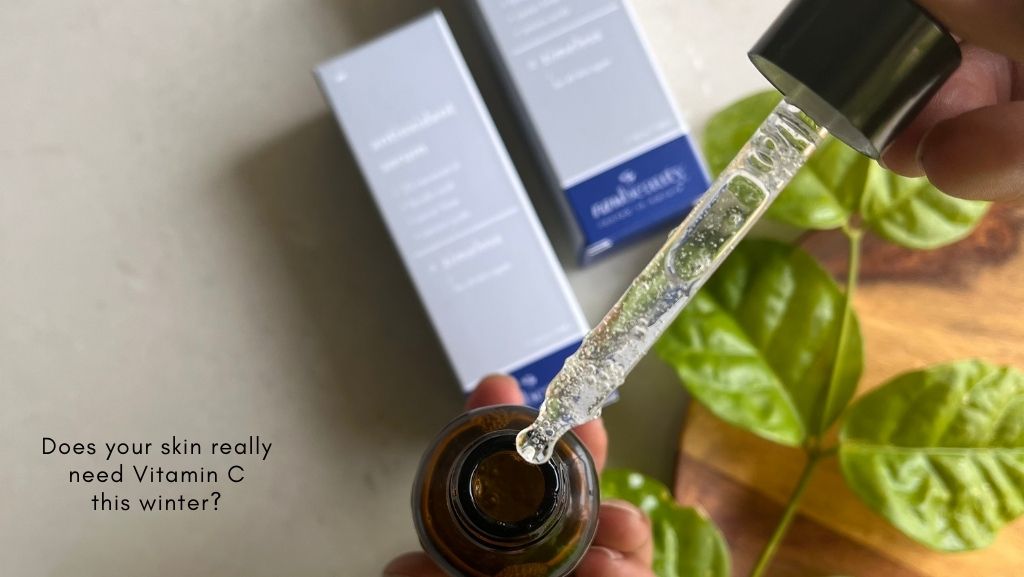
Does Your Skin Really Need Vitamin C For Skin This Winter?
As winter embraces us with its chilly grasp, our skin often battles the harsh effects of the season. Among the numerous skincare essentials, Vitamin C stands out as a potent ally for skin health. But does your skin truly need Vitamin C during the winter, especially when alternatives like Resveratrol, found in products such as the Timeless Antioxidant Serum, promise remarkable benefits?
What challenges does winter holds for your skin?
Winter poses several challenges for our skin-dryness, dullness, and increased susceptibility to damage from environmental aggressors. Vitamin C, renowned for its antioxidant properties, has long been hailed as a skincare hero. It combats free radicals, promotes collagen synthesis, and brightens the skin, offering a youthful radiance. However, emerging alternatives like Resveratrol are gaining attention for their unique prowess in addressing winter skin concerns. Vitamin C is also a popular choice for people in search of anti aging skin care products.
Our own creation Timeless is all things lovely for your skin in a bottle. with a blend of 2% Resveratrol, Ferulic Acid, Lime Caviar, and Amino Acids, this serum has been our most loved and bestselling product since so long for its ability to fortify the skin against any kind of dullness, pigmentation or fine lines. Resveratrol serves as the focal point of this serum's efficacy.
What is Resveratrol?
Resveratrol, often touted as a more stable alternative to Vitamin C, showcases exceptional antioxidant properties. Its prowess lies in its capacity to neutralize free radicals, shielding the skin from environmental stressors prevalent during winter. Moreover, Resveratrol demonstrates impressive anti-inflammatory benefits, soothing irritated winter skin and reducing redness. It doesn't dehydrate or sensitize the skin like Vitamin C does.
What sets Resveratrol apart from Vitamin C?
What sets Resveratrol apart is its stability and compatibility with various skin types. Unlike Vitamin C, which can sometimes be unstable and cause irritation in sensitive skin, Resveratrol proves to be gentler yet equally effective. Resveratrol, unlike traditional Vitamin C,is more stable and has the ability to penetrate the skin deeply, delivering lasting benefits without the risk of oxidation. Another important reason to choose Resveratrol over Vitamin C is that the it never compromises the skin's barrier but in fact strengthens it, unlike the latter.
Furthermore, the addition of Ferulic Acid in the Timeless' enhances the stability and potency of Resveratrol, amplifying its protective and rejuvenating effects. Lime Caviar and Amino Acids contribute to the serum's nourishing properties, providing essential nutrients to revitalize the skin during the harsh winter months.
Final Words
It's essential to note that while Resveratrol offers promising benefits, it doesn't entirely replace the virtues of Vitamin C. Both ingredients complement each other, each offering distinct advantages in combating different skin concerns. Vitamin C remains unparalleled in its ability to brighten the skin and fade dark spots, making it a valuable asset in one's skincare arsenal.
Ultimately, the choice between Vitamin C and Resveratrol may boil down to individual skin needs and preferences. For those seeking a stable, gentle yet potent antioxidant solution, Resveratrol, as found in the 'Timeless Antioxidant Serum,' could be a game-changer in the winter skincare routine.
You can pair Timeless with any hydrating lotion, cream and a more rich, emollient face cream or any good winter moisturizer for dry skin types especially.
Love,
Sunayana
Frequently Asked Question related to Winter Skincare
Is vitamin C good for winter skin?
Yes, vitamin C is beneficial for winter skin as it helps brighten dull complexion, boosts collagen production, and protects against environmental stressors like dry air and UV damage, common during the winter months.
Is vitamin C good for oily skin in winter?
Yes, it helps control excess oil, brightens skin, and protects against environmental damage.
Which fruit has highest vitamin C?
The fruit with the highest vitamin C content is the kiwifruit. It's packed with more vitamin C than oranges or lemons and offers numerous health benefits.
Is vitamin C destroyed by cold?
No, vitamin C is not destroyed by cold temperatures. In fact, storing vitamin C products in a cool place can help maintain their potency. However, exposure to heat, light, and air can degrade vitamin C over time.
Should I use vitamin C everyday?
Yes, incorporating vitamin C into your daily routine can support overall health and boost immunity.
Leave a comment
This site is protected by hCaptcha and the hCaptcha Privacy Policy and Terms of Service apply.